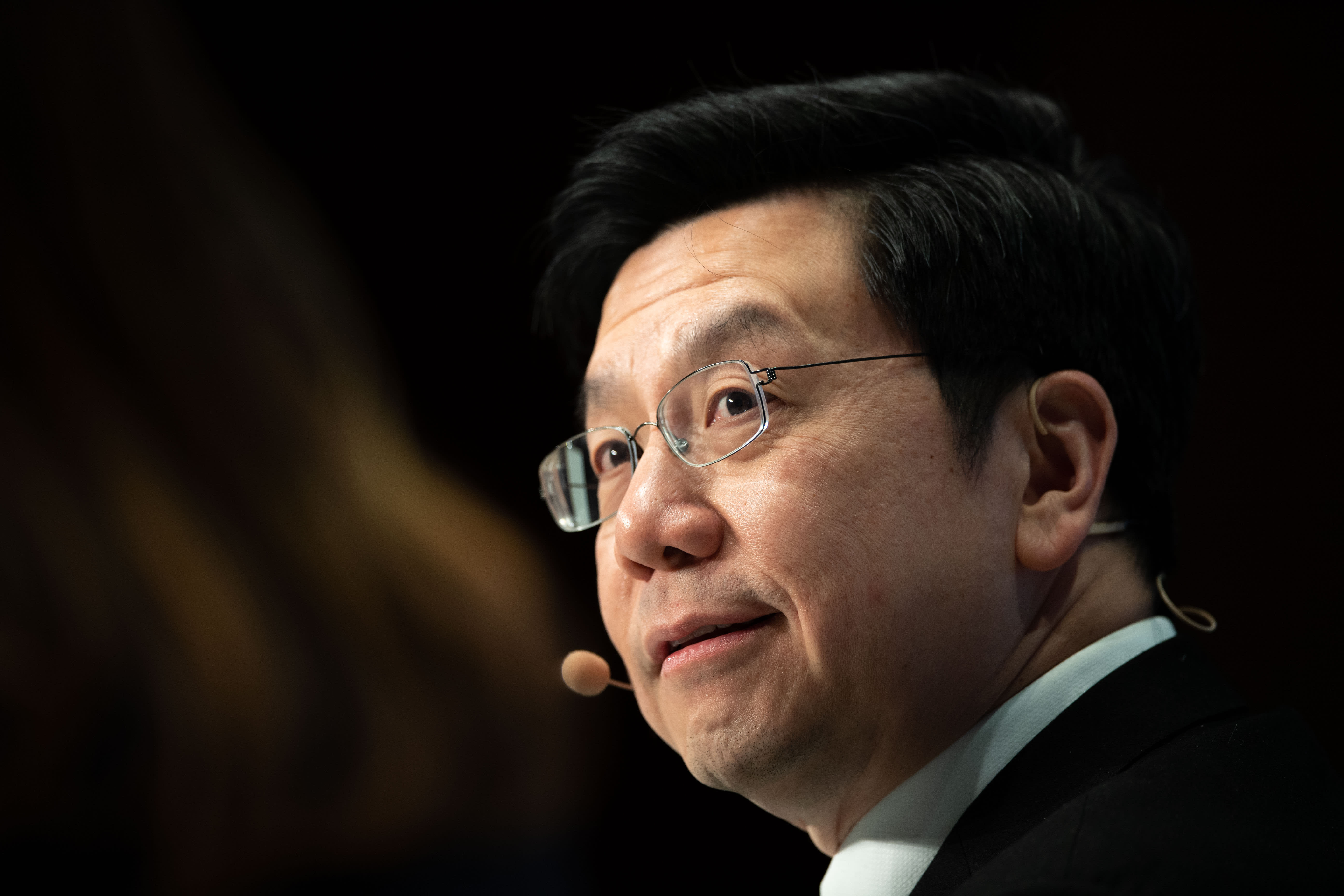
Kai-Fu Lee, CEO of Sinovation Ventures.
Lino Mirgeler | Picture Alliance | Getty Images
The former president of Google China warned that the West should be careful not to overstate or misinterpret the recently introduced regulations by Beijing that have hurt the likes of Alibaba, Tencent and Didi.
Kai-Fu Lee, who now invests in Chinese start-ups through his venture capital firm Sinovation Ventures, told CNBC Tuesday that China is merely regulating a handful of large internet companies to ensure their significant market position doesn’t hurt consumers.
“That’s not a lot different from what U.S. and EU have done,” said Lee, who is currently based in Beijing.
“There should not be an overinterpretation of the intent to limit the scope of large internet companies … into an overreaching slowdown of the tech economy,” Lee added. “That would be a mistaken interpretation.”
The Chinese government is actually “very big” on tech, Lee said, pointing to its push on areas like artificial intelligence, semiconductors, and cloud computing.
The Taiwanese-born American computer scientist said he expects 10 to 15 Chinese AI companies to go public in the next year and he argued that it makes sense for investors to take stakes in companies operating in industries being backed by the Chinese government.
“If you choose to believe that the government will have [the] power to make or break a company, then the government is doing everything it can to make these AI, semiconductor and cloud companies. So how can it be wrong to invest in them?” he said.
Alibaba, Tencent and Didi have seen their share prices slide in recent weeks after China introduced new regulation on data-sharing. Lee said there’s probably a case for “bargain hunting” as the punishments have now been handed out.
When it comes to regulating technology companies, Lee said China is much more “action-orientated” than the U.S.
“The way the U.S. deals with large internet companies is to go through congressional hearings, judicial appeal, and antitrust and justice department,” he said.
“It takes a long time and usually no action. China is much more action orientated,” he said, adding that Americans aren’t used to the speed.
“Fast decisions, if made correctly, will force these companies to reform and give a chance to smaller companies, which we invest in, to have a chance, creating a healthier ecosystem,” Lee said.
Ignore China ‘at your peril’
Earlier this week, ad guru Martin Sorrell warned that it’s unwise for companies to completely ignore China despite the challenges that exist in the country.
“It is the world’s second largest economy,” Sorrell told CNBC’s “Squawk Box Europe” on Monday. “It’s going to be the world’s largest economy in a few years, not on a per capita basis, but on an absolute basis, and you ignore it at your peril.”
Last week, billionaire George Soros criticized Blackrock, the world’s largest asset manager, for its investments in China. Writing in The Wall Street Journal, Soros described BlackRock’s initiative in China as a “tragic mistake” that would “damage the national security interests of the U.S. and other democracies.”
In response, a BlackRock spokesperson said: “The United States and China have a large and complex economic relationship.”
They added: “Total trade in goods and services between the two countries exceeded $600 billion in 2020. Through our investment activity, U.S.-based asset managers and other financial institutions contribute to the economic interconnectedness of the world’s two largest economies.”
Source: CNBC
